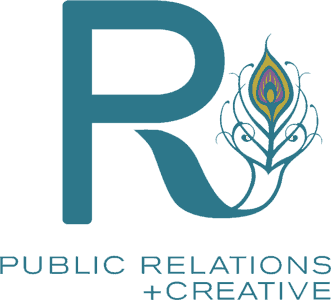Public relations (PR) is not just for big businesses with large budgets. It is for anyone who is looking to build a sustainable business. PR can play a critical role in the success of a new entrepreneur’s business. It’s a strategic communication process that can help you build your brand, establish credibility, and connect with your target audience. Here are five key things every new entrepreneur needs to know about PR:
1. PR Is More Than Just Media Coverage

When many people think of PR, they think of press releases, news articles, and television interviews. While media coverage is a valuable aspect of PR, it’s just one element of your communication and marketing strategy. Here are examples of effective tools in the PR toolbox:
- Media Relations
PR helps you build relationships with journalists and media outlets to secure favorable coverage.
- Content Creation
Developing compelling content like blog posts, videos, and infographics that resonate with your audience is another critical component of a strong public relations plan.
- Social Media Management
As a new entrepreneur, PR can help you use your social platforms to engage with your audience, share valuable content, and respond to feedback.
- Community Engagement
Participating in community events, sponsorships, and partnerships is another PR tactic that will help you build goodwill and trust within your community.
- Crisis Management
Public relations can help you prepare for and effectively manage crises or adverse publicity that may arise.
Understanding PR tactics will help new entrepreneurs create a well-rounded strategy that leverages multiple channels to enhance your brand’s visibility and reputation.
2. New Entrepreneurs Need to Begin with a Strong Messaging Strategy
Photo Credit: VladaKarpovich | Pexels
Before diving into PR activities, you need to have a clear and consistent message about your business.
- What problem does your product or service solve?
- What sets your business apart from competitors?
- Who is your target audience, and what are their needs and preferences?
Your messaging should be concise and tailored to your audience’s needs and interests. PR efforts will be more effective when built on a solid messaging foundation.
3. Relationships Are Key
PR is about more than just sending out press releases. It’s about building relationships with journalists, bloggers, and influencers who can help tell your story. Take the time to research and connect with relevant media outlets and reporters in your industry. Personalized pitches and building genuine relationships can lead to better coverage.
Here are some key relationships entrepreneurs should prioritize:
- Media Contacts: Establish connections with journalists, bloggers, and influencers in your industry. Personalize your outreach and offer valuable insights to build trust and enhance your chances of getting media coverage.
- Customers: Cultivate strong relationships with your customers through excellent customer service, engagement on social media, and personalized communication.
- Industry Peers: Network with fellow entrepreneurs, industry leaders, and associations. Collaborative efforts and partnerships can boost your credibility.
- Community: Engage with your local community through events, sponsorships, and philanthropic initiatives. Positive community relations can lead to word-of-mouth referrals and goodwill.
4. Content Creation Matters

In the digital age, content is your currency. PR can help entrepreneurs create high-quality, engaging content that showcases your brand’s expertise and provides value to your target audience. As a new entrepreneur, consider making content in various formats, including:
- Blog Posts: Share informative articles that address industry trends, customer pain points, or solutions related to your product or service.
- Videos: Create video content, such as tutorials, product demonstrations, or behind-the-scenes glimpses of your business.
- Podcasts: Launch a podcast to discuss relevant industry topics and invite guest experts to broaden your reach.
- Infographics: Visual content like infographics can simplify complex information and make it shareable on social media.
- Ebooks and Whitepapers: Offer in-depth resources that provide value to your audience and demonstrate your expertise.
Reach a wider audience by distributing your content through various channels, such as your website, social media, and email newsletters.
5. Crisis Preparedness is Non-Negotiable

Be prepared for the unexpected. Crises can happen in any business, and how you handle them can impact your reputation as a new entrepreneur. To effectively manage crises, a well-rounded public relations strategy can help you:
- Develop a crisis management plan that outlines roles, responsibilities, and communication procedures.
- Be transparent and honest when addressing issues, acknowledging mistakes, and providing solutions.
- Act swiftly to contain the situation and prevent further damage.
- Learn from the experience and use it to improve your processes and prevent future crises.
PR efforts should not be a shot in the dark. Use analytics and key performance indicators (KPIs) to track the effectiveness of your PR campaigns. This could include metrics like website traffic, social media engagement, media mentions, and customer inquiries. Analyze the data and adjust your PR strategy accordingly. What works for one business may not work for another, so be flexible and pivot as needed.
As a new entrepreneur, building a positive reputation and brand awareness through PR is a long-term investment in your business’s success. Don’t expect overnight results. Instead, focus on consistently delivering value to your audience, nurturing relationships, and refining your messaging and content. Over time, your efforts will pay off through increased brand recognition, customer loyalty, and business growth.
Understanding these essential principles can help your new entrepreneurial venture thrive in a competitive market. And if you need advice on how to get started, we can help. At RPR, our approach focuses on creating personalized strategies that align with your goals and maintain best practices without compromising quality. Schedule a call to discuss how we can help you invest in your new venture with PR strategies that work.
